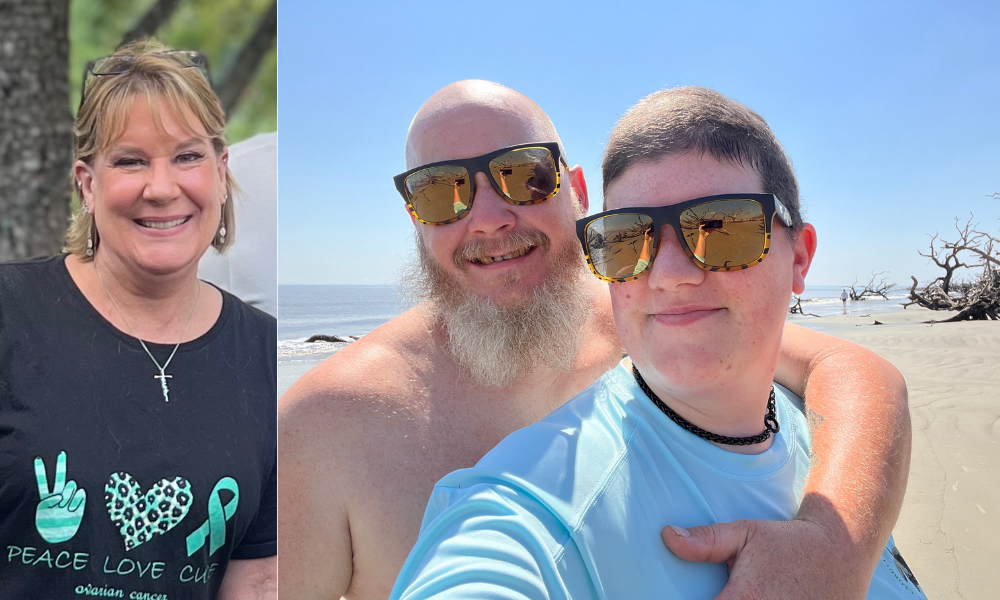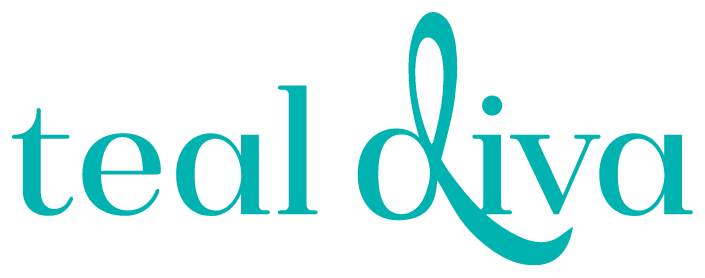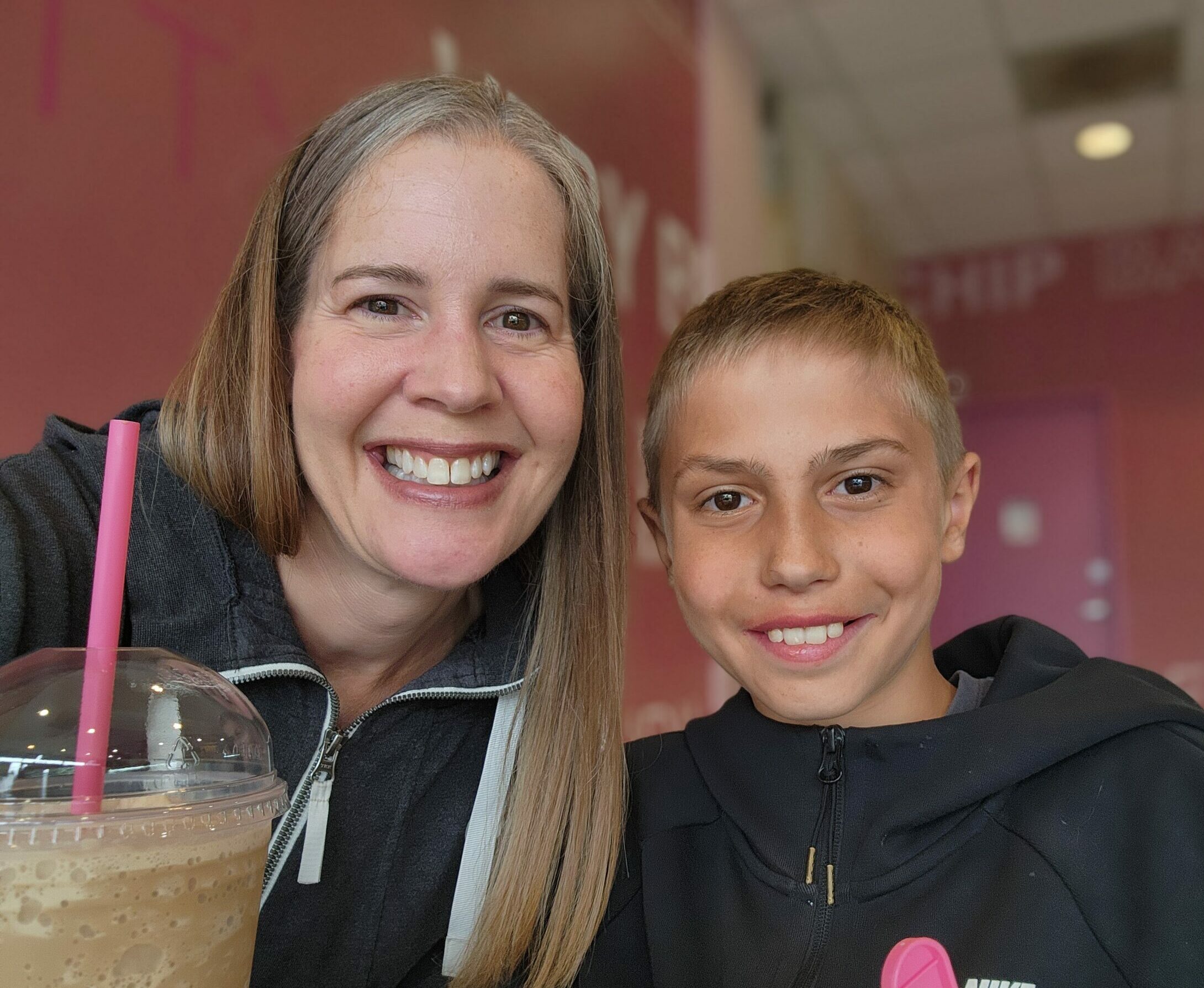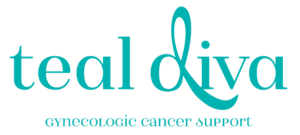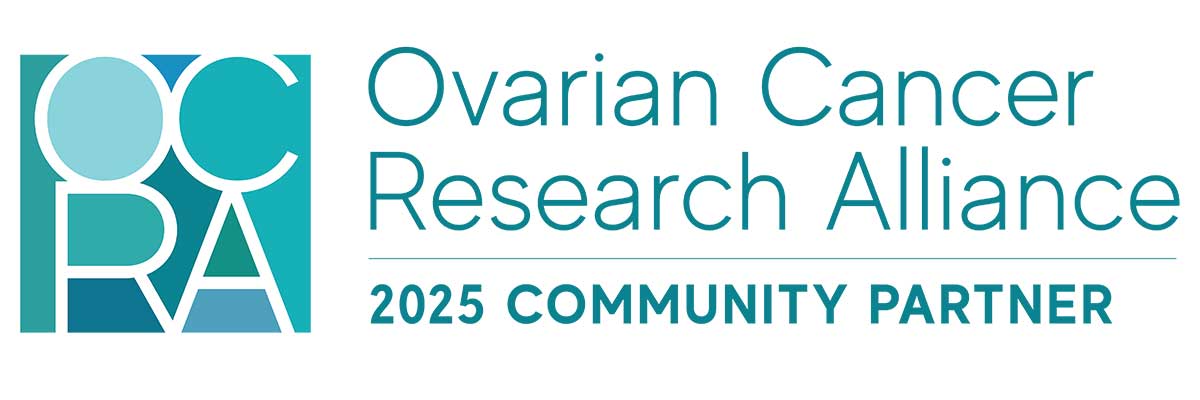This September, we’re highlighting survivor voices through a special blog series. Through shared questions, survivors opened up about what led to their diagnosis and what survivorship looks like for them today. Some responses reflect on the first signs and symptoms that signaled something was wrong, while others focus on life after cancer—the challenges, the growth, and the hope that carries them forward.
Each week, we’ll feature a selection of these answers, offering an honest glimpse into the journey of survivorship and the strength found in community.
We started by asking survivors how they first knew something wasn’t right, and their responses were powerful. To give each voice space, we’ve divided this question into four parts and will share different answers each week.
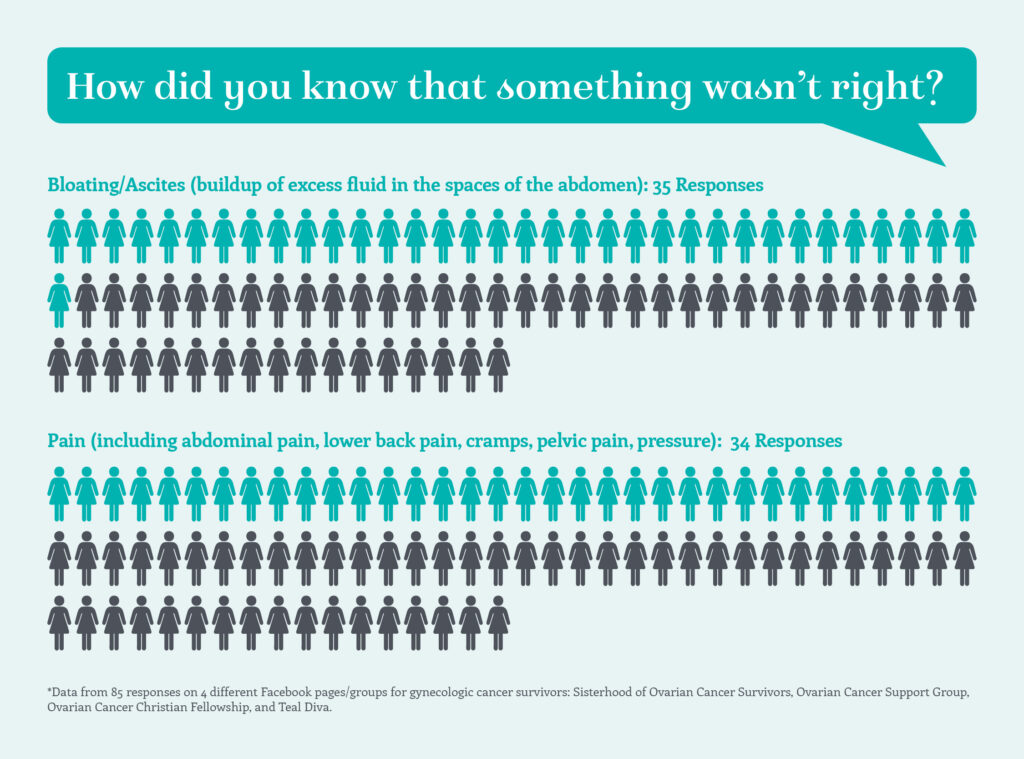
What’s one thing you wish more people understood about your gynecologic cancer?
“Age doesn’t matter, family history doesn’t matter.”
“It is not curable. It is an ongoing battle. That even if you look well, treatment will take a toll physically, and I live with the knowledge that any day, at any time, treatment may stop working.”
“How subtle the symptoms are.”
“Look at your family history. If you think you might have inherited your cancer from your mother or your father’s side of the family, get genetic testing. If you test positive, then tell all your relatives on that side of the family to get tested. If they test positive, then they are at high risk. They can then get screened to catch cancer early. Women can get their tubes and ovaries removed to avoid ovarian cancer.”
“I faithfully have a gynecological check-up. I did not realize that ovarian cancer is not detected through Pap smears. Also, CA125 is not a clear indicator of ovarian cancer. My CA125 was 19. Which is within the normal limit, which is anything under 35”
“A cancer diagnosis doesn’t necessarily mean chemo and radiation; it possibly is contained and will hopefully all be removed. It may possibly pop back up if not. I was told that if I had waited any longer, it would have been a worse situation. I was lucky.”
“There is HOPE!!!”
“It’s not always “obvious.” The symptoms associated with it are pretty routine with women, and we are taught as women to “take it.” We brush off a lot of symptoms when we should be paying attention.”
“I wish that more people understood that losing your female organs affects how you see yourself as a woman. I struggled with the thought that I am not a complete woman now. Losing my female organs and my hair was very emotional. I think that was the worst part.”
“You can inherit mutations from either parent, not just the mother.”
“That it’s cancer. Yes, every cancer has a different name- breast, ovarian, lung, etc. That doesn’t make it any different, just because it’s in a different area of your body. I hear a lot, “it’s the good cancer”. No cancer is good PERIOD. People need to understand, cancer is cancer. It’s serious and should be treated as such.”
“There is NO test to detect ovarian cancer. Women need to know AND understand the signs and symptoms. Better education!”
“If something doesn’t feel right in your body, go get checked.”
“That I am scared. It is important for people to think before they speak to me. They need to be sensitive to how what they say might affect me.”
“Wish that there were better ways to diagnose gynecologic cancer because when I was diagnosed, I was Stage 3 already.”
“Symptoms can be nonexistent or extremely vague. Accurately diagnosing these cancers is often really dependent on a physician listening to a patient and being a keen investigator, and knowing the current standard of care.”
“The symptoms are very subtle and easy to overlook or justify.”
“Doctors need to recognize the symptoms, however vague. Listen carefully to what your patient is saying.”
“How sneaky they are. It is so hard to diagnose because they present with common symptoms and tend to get ignored.”
“Ovarian cancer does NOT have an accurate screener to detect early development.”
“I think some people mistakenly think that they somehow did something wrong to get cancer, but this is not really true. Sure, our health habits have consequences, but God is not deciding to give some people cancer because they did something bad and deserve it. The rain falls on the just and unjust, and He carries us through all the things that we go through in this life.”
“You MUST be your own advocate. You MUST listen to your body. And after you survive, you MUST seek medical attention for the rest of your life to combat the symptoms of living without estrogen. Quality can return to your life, but only if you realize how the depletion of estrogen will affect you.”
“I wish more people understood that the physical and mental ramifications of being diagnosed and treated for my cancer did not end the day that I was told I was NED.”
“I wish more people understood that gynecologic cancers don’t always scream for attention; they whisper. You have to know your body, trust your instincts, and push for answers, because early detection can make all the difference.”
“It is possible to live a full life with chronic, metastatic disease. I may not be able to do everything that I used to, but everything I do is with a joyful and grateful heart.”
“There are a variety of types, and a PAP test only detects cervical cancer.”
“The way the symptoms can be passed off as “normal” even by the patient. In my case, I passed off occasional sharp pelvic pain as normal cramping. I didn’t mention it to my husband or a doctor until the pain continued for almost 15 hours.”
“Unfortunately, this cancer does not show many symptoms until later stages, and it is not diagnosed with a PapSmear, and symptoms can go unnoticed. There is no routine exam for ovarian cancer.”
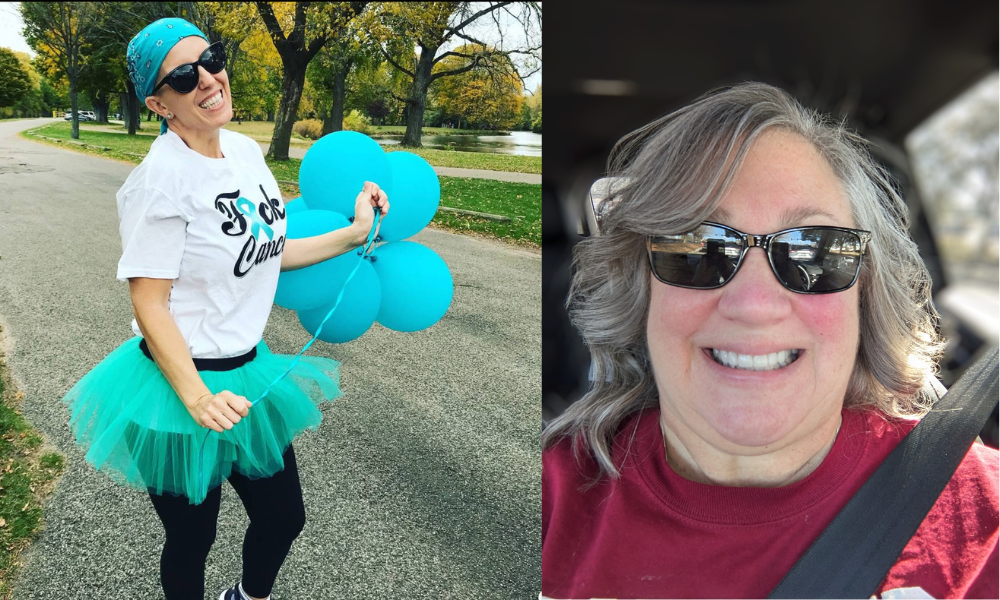
Describe the moment you felt most supported during your cancer journey?
“My parents came to all my Chemotherapy treatments.”
“When 3 of my friends were diagnosed with different cancers within a couple of months of me. They provided so much emotional support. One is clear, one is in remission, and one is still fighting like I am. She and I talk every couple of weeks and share so much information and support one another consistently.”
“I have a great medical team. They are always available.”
“My husband, mother, and brother helped give me courage from the very beginning.”
“My gynecologist immediately started tests in his office. He referred me to a Gyno/Oncologist and called her while I was in his office during that initial visit. There was no delay in getting the care I needed. Also have a strong support system through my family, church, and friends. I definitely am not in this journey alone.”
“I went through this in 2009-2010, but when Teal Diva had their first 5k in Mooresville in May 2014, I suddenly discovered support that I didn’t know existed.”
“I joined a support group for Ovarian Cancer patients, and the support was amazing!!!”
“My employer never made me feel like I’d lose my job because of all the hospital stays and surgeries. My job also understood my need to work and not be out of work for too long because I needed to keep my mind busy with something other than my illness.”
“Once my hair started coming out, I had a dear friend who is a hairstylist buzz my head. When I made the appointment, my three daughters secretly planned a Hat & Cap shower for me. They invited all of my dear friends, had food, cake, and punch (like a baby/bridal shower), and the guests all brought different types of hats, caps, and cancer head covers. The invitations said, “Let’s support Kimberly in her cancer fight and help her maintain her Diva style!” I had bunches of head covers. It was actually fun. I tried on each hat I received and took a picture with the friend who gave it to me. We ate, laughed, cried, and prayed together. I knew at that moment that I had an awesome tribe supporting me in my battle.”
“When my family came to appointments and infusions.”
“My husband has never left my side during this whole journey. He even goes to my follow-ups for maintenance now. He took off work every treatment for a week to take care of me. He’s got a great job. His whole work was constantly checking in and praying for me. I had a lot of people on my side praying for me, and I don’t think I realized that.”
“The first is when I met my surgeon. He took his time explaining my tests and the type of surgery he would perform. He answered all my questions. The second is when I joined the NOCC Facebook group!”
“That’s a hard question. I had tremendous support from my family and my medical team.”
“Being around other women with ovarian cancer is helpful. They understand. Also, I have felt love from friends who have left notes or gift cards for food, check on me, and pray for me. When people tell me that they are there for me..When my husband or children go with me to doctor’s appointments or chemo, I feel supported. When people help with physical things such as yardwork or house cleaning, it has been amazing support.”
“The entire process, my family and very close family friends were making sure that they were here for me and supporting me through this journey.”
“My oldest daughter and her fiancé stayed with me at the ER until 2 am, when they finally brought me to a room. My 2nd daughter and her husband worked with the Red Cross to get him emergency leave from the army to come and be with me after my surgery. My mom, who had her own health problems, sat with me in the hospital throughout my recovery.”
“When I realized I had a good team of doctors treating me.”
“From the very beginning.”
“My husband and son have been troopers and took excellent care of me while working 40+ hour a week jobs.”
“It was not one moment, but all the moments. Friends & co-workers sent cards and flowers, many people said prayers, and I received many supportive messages on Facebook. Even my doctor sent me a very nice card.”
“I never felt supported until I read ‘It’s Always Something, by Gilda Radner.’ Gilda had passed away from Ovarian cancer just before my diagnosis. If not for her, I probably would not be here today, 35 years later.”
“I felt the most connected and supported during the OBX Teal Diva Retreat. I am blessed with a wonderful, supportive husband, family, and close friends who have been by my side through my cancer journey. However, the retreat was the first time that I was able to connect with folks who really understood what I was experiencing.”
“The moment I felt most supported was seeing my husband’s unwavering patience and love, even while I knew he was carrying his own fears. He stayed steady, strong, and present, holding me up on the hard days, making me laugh when I wanted to cry, and showing me through his actions that we were in this fight together.”
“Finding the right support groups and becoming active as an advocate for ovarian cancer has given me hope and strength. I am thankful for the support of women who understand what I go through and blessed to do the same for other women.”
“As difficult as it was to tell people, without exception, I felt tremendous support. So grateful to friends, family, and my church who have consistently stepped up to be there for me.”
“When I saw how many people were praying for me and left notes of encouragement either on my CaringBridge page or my Facebook page, including people that I had not seen in person since our high school graduation.”
“I am so blessed and have to be grateful for all around me, family/friends/brothers, and sisters in Christ, because I have been supported since day one. My family has been by my side every step on this journey, caring for me and helping with everything (even with a personal chauffeur lol, my mom, because she does not want me driving during chemo!). I have an army praying for me, I had people bringing meals/cooking for me, showered with messages/calls, visits, gifts (items to use during this journey), etc.”
